Talky Tuesday #20
S&NY engine #117 takes a spin on the Lehigh Valley turntable at Towanda in last week’s “WW #48”. The #117 was originally built for the NYC in 1900 at Schenectady, and was bought second-hand by the S&NY in 1926. After abandonment in 1942, the little 2-6-0 was turned into scrap for the war effort.
Talky Tuesday #19
The mail must go through! Last week’s “WW #47” illustrates on of the reasons the S&NY was able to weather the Great Depression. In the era before interstate highways, UPS, television, and the internet, one of the few ways people and businesses could communicate long-distance was via the U.S. Mail. The funds from mail-hauling contracts with the U.S. government was often the only thing keeping many otherwise unprofitable passenger trains and shortlines afloat during the Depression and WWII, at least until trucks began to take over the business in the 1950’s.
Here mailbags are exchanged at a station stop somewhere along the S&NY, possibly Wheelerville.
Talky Tuesday #18
An unusual southward looking view at Towanda is the subject of last week’s “Wordless Wednesday #46”. This scene is clearly after abandonment of the S&NY, as all of the tracks have been removed, save those transferred to the Lehigh Valley on the right, preserving a connection to the LV’s State Line and Sullivan Branch at Monroeton.
While probably uninteresting to the casual observer (just some abandoned buildings), this photo is a valuable find for the modeler. Essentially every other photo of the S&NY yard at Towanda I have was shot facing the opposite way (i.e. north). This is the only photo I have found that shows the north side of the engine house, sand house, and S&NY station/yard office.
Talky Tuesday #17
Last week’s “WW #45” is from the collection of Steve Hall, and shows SNY fireman H.G. McQuay, John J. Kilmer (section foreman?), and engineer Eli Chilson clowning a bit for the camera. Engine #114 forms the backdrop.
Op Session #7
The model S&NY hosted its 7th op session on May 8th, 2015. A good time was had by all, and the railroad behaved very well. Only one slightly sticky set of turnout points, and slight episodic hesitation of one locomotive late in the session. I believe this proves the old adage that the way to have a smooth-running model railroad is to run it. Running the railroad, especially with visitors present, is a sure way to flush out any gremlins. Glitch by glitch, the numerous little hiccups inherent to any newly constructed layout will make themselves apparent and can be fixed between sessions.
That, and have clean track. I did spend a bit of effort prior to the previous session cleaning every inch of track with a scrap block of homasote soaked with laquer thinner, and the previous issues with electrical continuity have significantly improved.
I also tried to adhere a little closer to the timetable and issue written orders as necessary to both get the trains over the road, and add some authenticity. I have some continuing concerns that the loaded and empty extra coal train ping-ponging back and forth during the session might not be the most desirable train to run, and it is usually not the first job the crews bid on for a session. However, one crew member expressed the opinion that running the extra, with a helper on the rear, against the other scheduled timetable trains was actually an interesting challenge. It was gratifying to hear this, as a design goal was to provide a variety of trains that would each be engaging to run in their own way. I think it it telling though, that this individual is probably the most “into” timetable and train order ops.
Lastly, I doctored up a little cell phone video made by one of the fellows to provide a little “historical” footnote to the session:
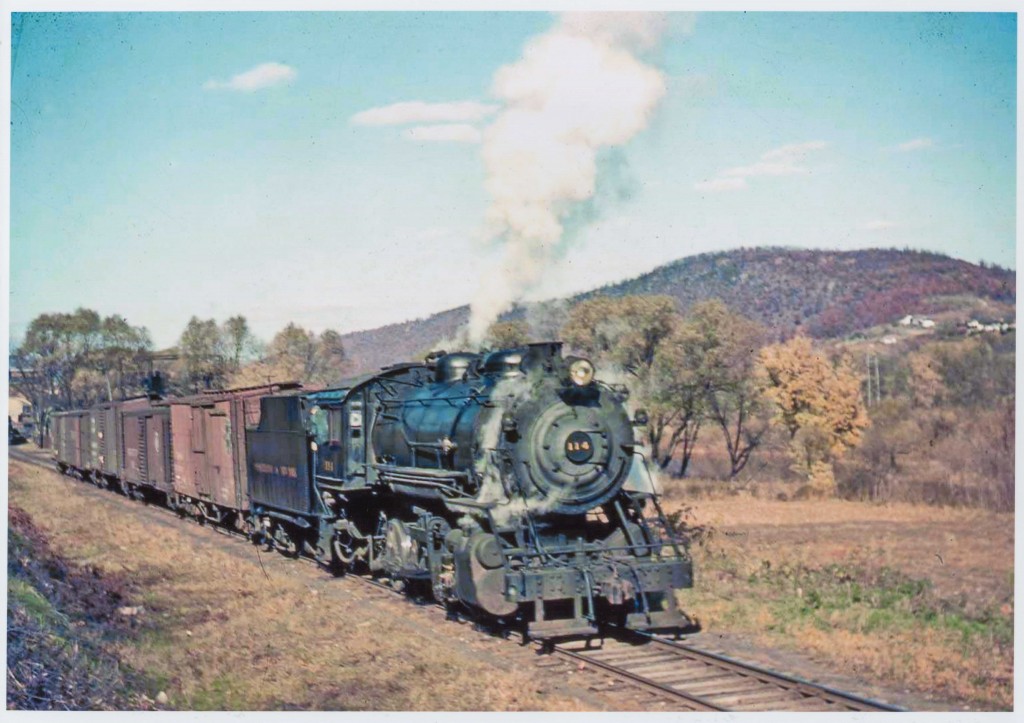
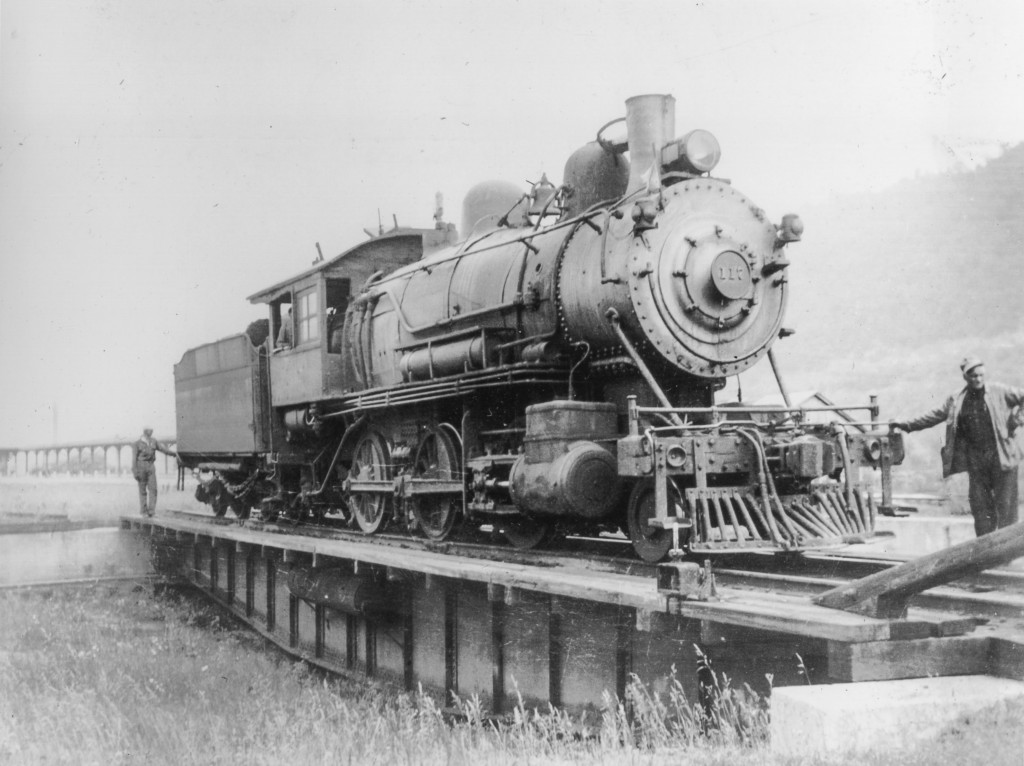
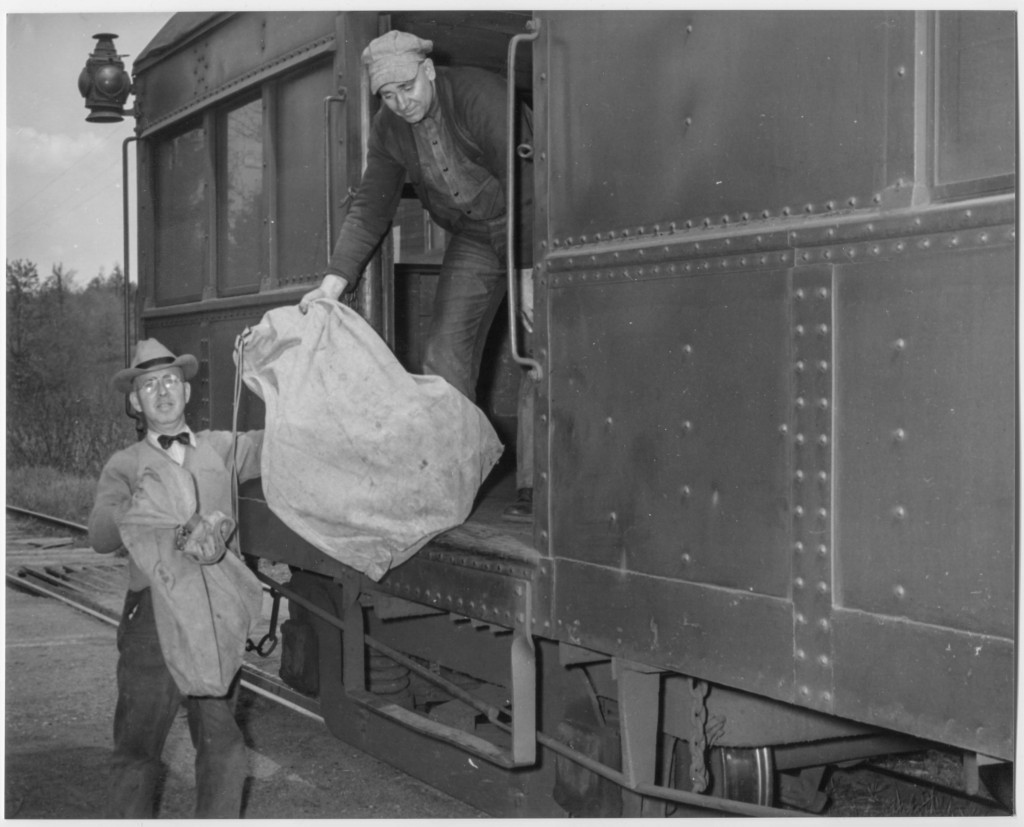
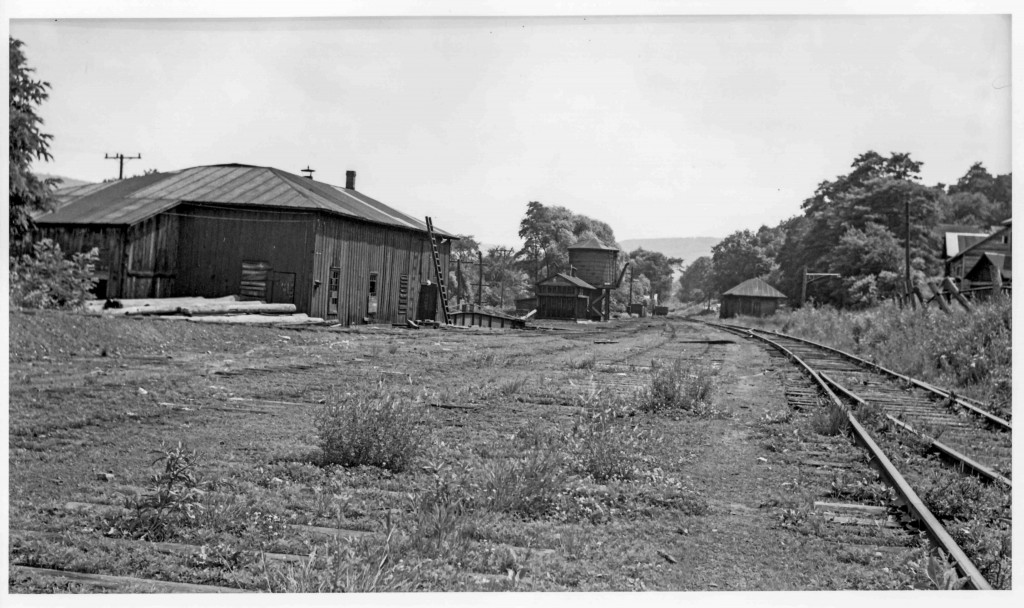
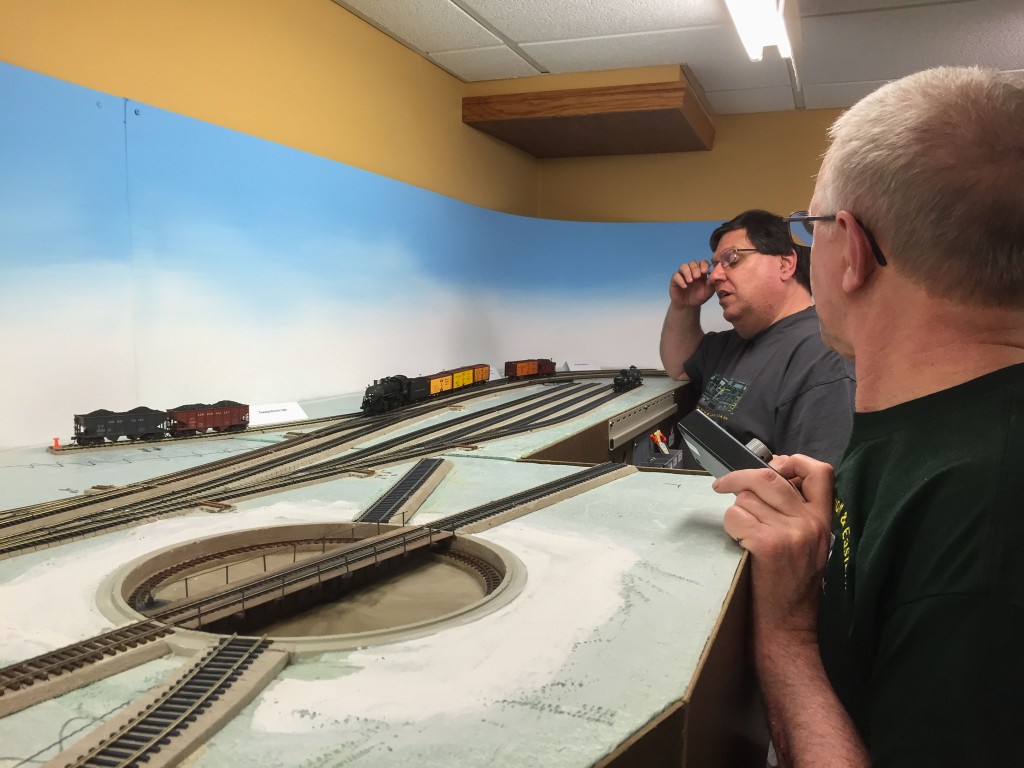
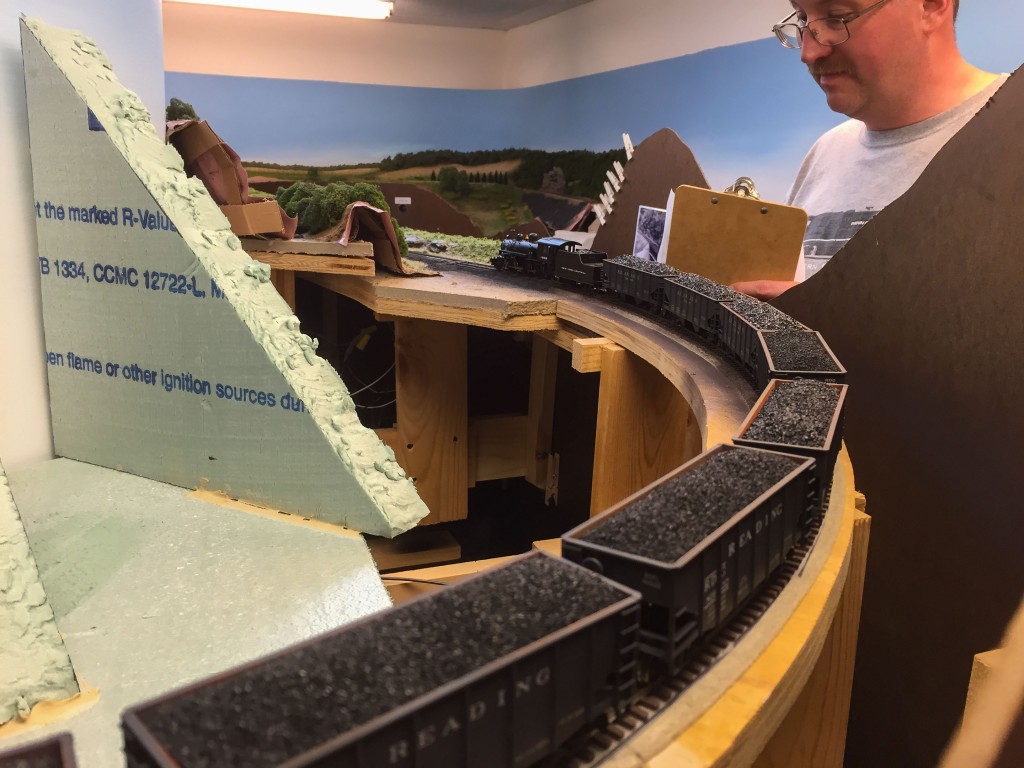
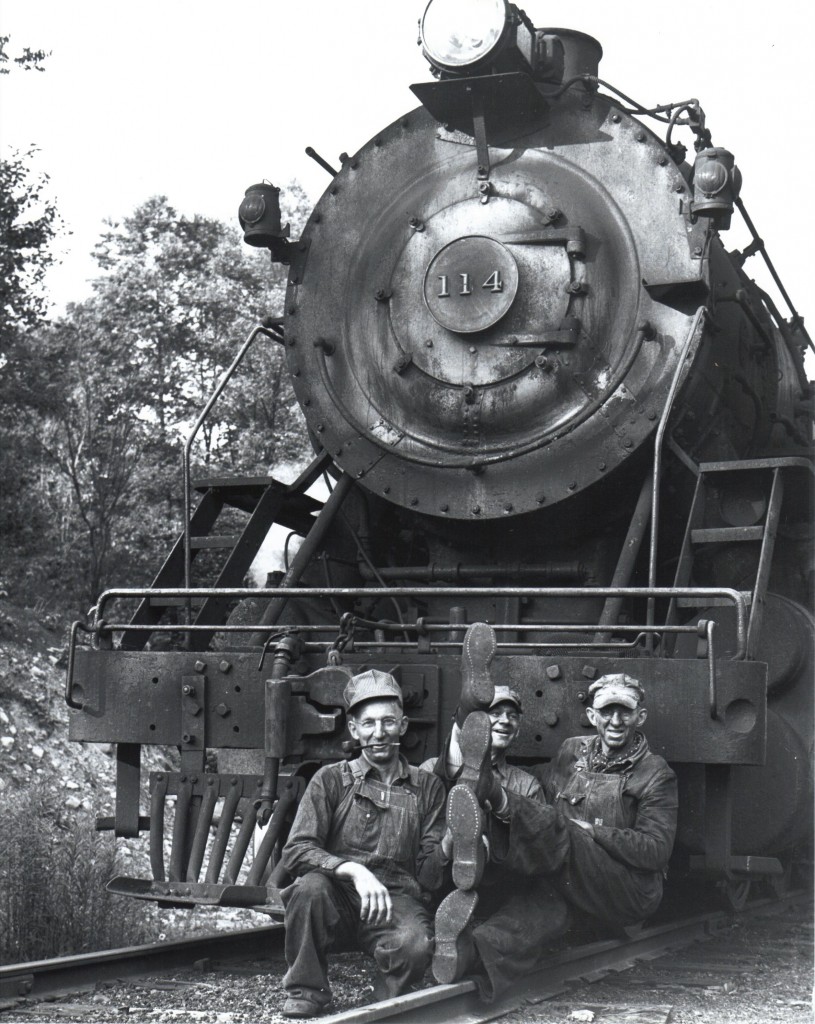
Recent Comments